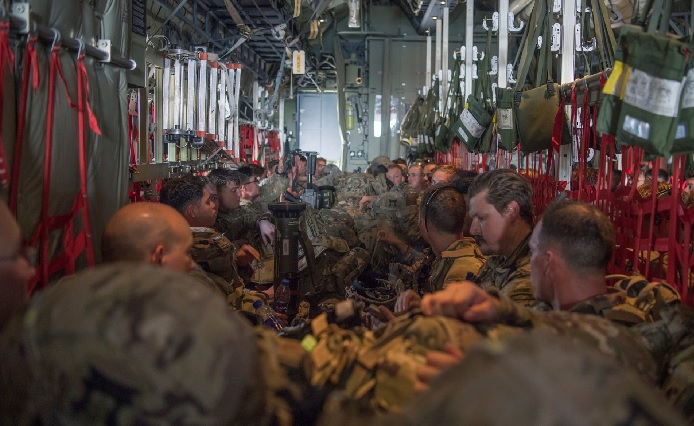
The Somali terrorist outfit al-Shabaab has threatened to strike at American targets around the world days after it mounted a deadly and unprecedented attack on US forces stationed in Kenya.
Emboldened by the unexpected success of last Sunday’s assault on a military base in northern Kenya’s Manda Bay region, the jihadist group, a franchise of al-Qaeda, promised “further bloodshed” against American soldiers and civilians alike.
The attack, which exposed a troubling lack of security, leaves the Trump administration struggling to deal with a significant and growing military challenge at a time when it is already preoccupied by its face-off with Iran.
The US Army’s Africa Command (AFRICOM) has scrambled to respond to the attack, sending combat-ready reinforcements from the 101st Airborne Division to northern Kenya and stepping up airstrikes against al-Shabaab in neighbouring Somalia.
But it has yet to explain how a lightly-armed detachment of Islamist fighters, probably numbering no more than 15, managed to cross into Kenya, advance unspotted on foot across 50 miles of bush before killing three Americans and wrecking six hi-tech surveillance aircraft.
Although al-Shabaab has waged an insurgency against the Somali government and foreign forces stationed in Somalia for more than a decade, it was only in September that the group began to target the United States in earnest.
al-Shabaab
The shift in emphasis is seen in part as retaliation for a surge in US drone strikes targeting the group’s leadership since Donald Trump became president in January 2017.
A Shabaab attack on American troops stationed at Baledogle near the Somali capital late last year failed to inflict casualties. Since then, however, Ahmed Diriye, the group’s leader, has instructed all units, as well as affiliated East African groups, to concentrate almost exclusively on attacking the United States and its allies.
British troops stationed in Somalia could well find themselves in the firing line, said Harun Maruf, co-author of “Inside al-Shabaab: The Secret History of al-Qaeda’s Most Powerful Ally.”
Some 60 British army personnel are stationed in Somalia. Mr Maruf said a British military training facility in the southern town of Baidoa was a possible al-Shabaab target, although he also noted it was well protected by Ethiopian troops, by far the most effective African army operating in Somalia.
The attack on Manda Bay, the deadliest in terms of American combat deaths in Africa since 2017, is likely to renew calls from Trump administration isolationists to reduce US troops numbers on the continent.
They argue that al-Shabaab is unlikely ever to attack the United States itself and that stationing US troops in East Africa is not just costly but merely serves to give the group a target.
Stig Jarle Hansen, an al-Shabaab expert and author of “Horn, Sahel and Rift: Fault-lines of the African Jihad” warns that an a withdrawal from Somalia would, as in Syria, create a vacuum that might be filled by Russia, among others — as well as allowing the potential rise of an extremist state in the country deeply hostile to the West.
In the aftermath of the Manda Bay attack, Senior US officers in Africa were quick to emphasise the importance of keeping troops in place.
Gen Stephen Townsend, AFRICOM’s commanding officer, went so far as to deliver an implicit rebuke of Trump administration officials who thought al-Shabaab would never attack the United States itself.
“Al-Shabaab is ruthless and must be dealt with before the network expands its reach to other places, to include their stated desire to strike US citizens on the US homeland,” he said.
“This al-Qaeda-aligned terrorist network has demonstrated an ability to conduct external attacks previously and will continue to do so unless they are countered where they reside.”
